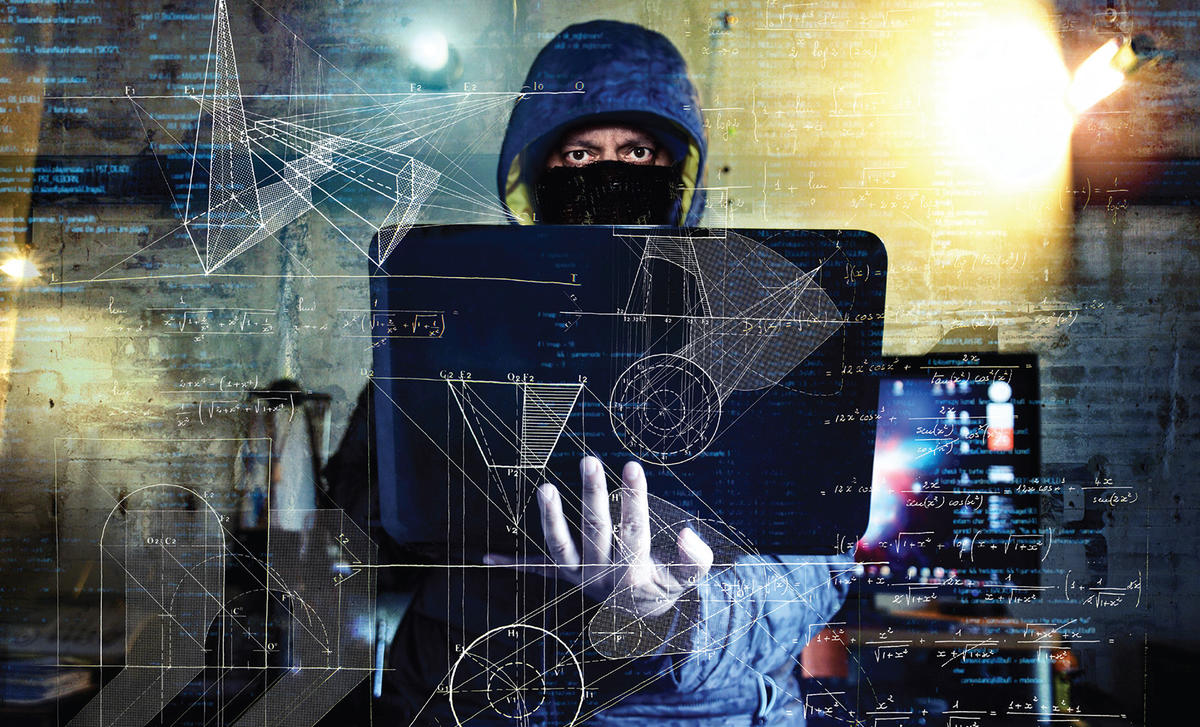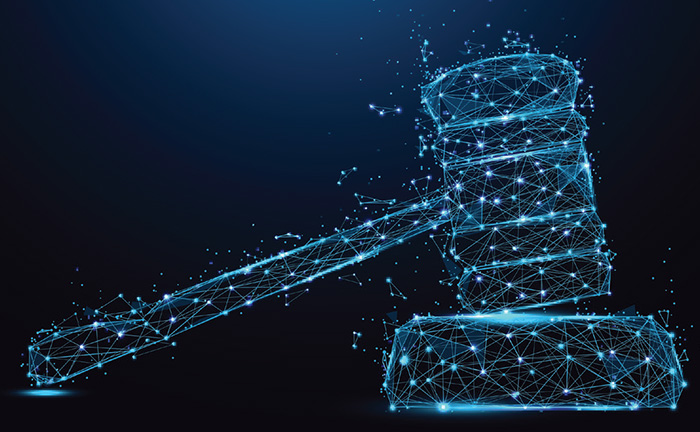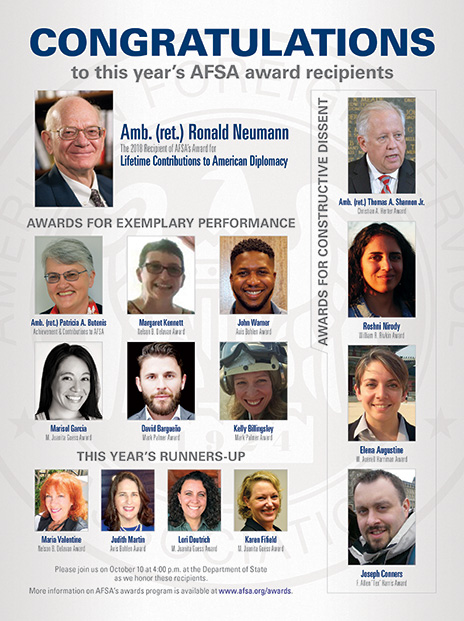Illicit Trade and Our Global Response
Illegal trade is a growing threat to the community of nations, the world’s population and earth’s environment. Recognizing that criminals don’t stovepipe is the key to an effective response.
BY LOUISE SHELLEY
New computer technologies, communications and globalization are fueling the exponential growth of dangerous forms of illegal trade—for example, the markets for narcotics and child pornography online, the escalation of sex trafficking through web advertisements, and the sale of endangered species for which revenues total in the hundreds of millions of dollars. The illicit economy exacerbates many of the world’s destabilizing phenomena: it helps perpetuate local and regional conflicts, the proliferation of arms and weapons of mass destruction, and environmental degradation and species extinction.
Illicit trade consists of both tangible goods—drugs, human beings, weapons, wildlife and timber, fish, antiquities and ubiquitous counterfeits—and intangible goods bought and sold in cyberspace, such as passwords, botnets and malware. These intangible goods, poorly understood by most, cost consumers and organizations billions worldwide in the form of lost identities, funds stolen from bank accounts, computer data accessed and pilfered from private accounts and stolen intellectual property.
No longer primarily an urban problem or one confined to ports of call, illicit trade now extends into the most remote villages and smallest towns all around the globe. The connectivity of the world’s population has increased geometrically during the past two decades—today, some five billion out of a global population of 7.4 billion use cell phones that can connect them to the internet, to social media and to the global marketplace. One recently investigated cybercrime case involved a ransomware attack that victimized many thousands of individuals in at least 189 countries.
Victimization, moreover, is not just “virtual”; it can also be physical, as in the case of counterfeit drugs (often ordered online), which pose a growing public health hazard in the United States and are pervasive in Africa and Asia. In “The Health and Economic Effects of Counterfeit Drugs,” Erwin A. Blackstone et al. estimated that 9 percent of drugs consumed in Europe as of 2014 were counterfeit; the World Health Organization estimates that in parts of Asia, Africa and Latin America, 30 percent of the drugs sold are counterfeit.
The rise of the internet, the dark web and social media has fundamentally transformed human trafficking around the world.
Corruption and illicit financial flows are key to the growth of illicit trade. Officials at every level are in a position to facilitate production, dissemination and transport of illegal goods. This is a particular problem in the developing world, but officials in the developed world also participate. It extends into the cyberworld, as well. For instance, two American law enforcement officials are presently serving sentences for criminal engagement with the drug kingpin who ran Silk Road, the first massive online marketplace for illicit trade. As Mark Bilton, special correspondent for Vanity Fair, reported in his American Kingpin: The Epic Hunt for the Criminal Mastermind Behind the Silk Road (Portfolio, 2017), the operator of this darknet site processed $1.2 billion in transactions in cryptocurrency in its two years of operation before being closed down through concerted law enforcement efforts. Subsequent takedowns of marketplaces for illegal goods on the dark web have combined the efforts of law enforcement in 40 countries.
Without adequate safeguards in the global financial system, unfortunately, crime too often pays. And the leaked “Panama Papers” reveal how a single financial hub can receive ill-gotten gains from many countries, including the proceeds of crime, terrorist groups and corrupt officials.
While the dangers posed by illicit trade are easy to see, its scope and the complexity of its operations—including interfaces with legal economic activity—make for a serious challenge in terms of developing and implementing an effective policy response.
A Taxonomy of Transnational Crime
Though transnational crimes such as the drug and arms trade, human smuggling and trafficking merit the most attention from law enforcement, international illicit trade also includes a vast range of counterfeit and pirated products sold online and through markets around the world. Counterfeit products range from sneakers and electronics to pharmaceuticals and pesticides that undermine the sustainability of life. Illegally harvested timber and fish that should not be caught and traded represent multibillion-dollar businesses.
Besides being one of the fastest-growing segments among some dozen types of transnational crime, counterfeiting and piracy is also the most valuable. According to a 2017 study commissioned by the International Chamber of Commerce, the global trade in counterfeit and pirated goods is estimated to generate between $923 billion to $1.13 trillion annually (this includes cross-border trade, domestic trade and digital piracy). The drug trade and human trafficking rank below counterfeiting and piracy in profitability.
Human trafficking revenues are estimated at $150 billion annually. The rise of the internet, the dark web and social media has fundamentally transformed human trafficking around the world. Although many assume that this offense is only associated with hard-core criminals, it is a fact that, as in the past, government officials and business people are deeply involved in this inhuman business. Its growth and increasing profitability have been fueled by corporations that facilitate advertisements and payment systems for the sale of sex trafficking victims and the online distribution of child pornography. Corporate vessels engaged in illegal, unreported and unregulated fishing exploit trafficked labor.
Sexual exploitation is only one form of human trafficking. Labor exploitation, forced marriage and illegal organ transplantation are other forms of this crime. All involve elements of coercion, fraud and deception, but do not require movement; individuals can be trafficked for marriage or sex, for example, within their immediate community.
Human trafficking is distinct from illegal immigration: in the latter case, individuals agree to be transported across borders illegally; the individual and the trafficker have a consensual rather than a coerced relationship. But in the case of human trafficking, the individual is the victim. And in cases involving smuggling, the state is victimized; its borders and sovereignty are violated.
The Embassy’s Role
Many of the most serious threats to the United States today are financed and expedited by the proceeds of illicit trade. So the effects of transnational crime figure in the work of every embassy today, whether it is monitoring the insecurity resulting from civil wars and conflicts funded by illicit commodities, the human rights violations resulting from this trade or the role of narcotics in the local economy.
Specific State Department products require the cooperation of all embassies overseas. State’s Trafficking In Persons Report chronicles the trade in human beings for sexual, labor and other forms of exploitation around the world. Those providing input to the Country Reports on Terrorism must follow the financing of terrorism, part of which comes from illicit trade in arms, people, drugs and other commodities, including in some locales wildlife. Although illicit trade is at the heart of threat finance, monitoring and combating illicit trade is not just the responsibility of law enforcement, human trafficking or terrorism specialists—almost all embassy employees do contribute in some way.
Members of the consular division work to ensure that they are not providing visas to human traffickers and their potential victims, or to the many other perpetrators and facilitators of illicit trade and its companion activity, money laundering. Employees of economic and commercial sections work to encourage trade from the United States. This includes defending intellectual property from those who might appropriate it and ensuring that mining, transport and financial institutions are not infiltrated or misused by illicit traders.
Analysis of the illicit economy is often critical, because it may represent as much as 20 percent of total economic activity in some of the most affected countries. In conflict-ridden states such as Afghanistan, Syria and the Democratic Republic of the Congo, significant sums are generated from illegal trade in narcotics and people, as well as trade in natural resources such as oil, gold, timber and coltan, a key component of cell phones. The agricultural branch of embassies must focus on the increasing trade in pesticides and counterfeit food production shipped globally.
As the variety and scope of illicit trade today and its repercussions globally implies, this is not a problem that can be left merely to the law enforcement section of the embassy, although it has a key role to play. Much more can be accomplished by harnessing the collective capacities of the different agencies now represented in embassies to develop and implement effective policies.
Need of the Hour—Stop Stovepiping
Illicit trade has such significant cross-cutting effects on politics, economy and society that responses cannot be left to single sections of embassies or branches of government; broader, more comprehensive approaches are essential. As our national security strategy singles out the challenges of these harmful trades, collective efforts in working groups, both overseas and in Washington, D.C., are needed to counter the diverse forms of illicit trade that often intersect with the legitimate economy. Because the products of the illicit economy often travel long and disguised routes, it is necessary that responses are not only national or regional, but that they combine expertise from countries along the entire supply chain. The convergence of different commodities along these diverse routes—such as drugs and people, or wildlife and arms— suggests that stovepiping of specializations in embassies must be overcome.
Only governments compartmentalize their responses; criminals and corrupt officials combine their activities to maximize their competitive advantage. The government, through its embassies overseas, needs to be able to work more effectively to follow the money. Different government agencies with responsibility for combating transnational crime—such as the Department of Homeland Security and its U.S. Customs and Border Protection division, the Drug Enforcement Administration, the Internal Revenue Service, the Federal Bureau of Investigation and the U.S. Treasury Department—must work with diplomats to develop, implement and execute efficient responses to the ever-changing behavior of transnational criminals.
Only governments compartmentalize their responses; criminals and corrupt officials combine their activities to maximize their competitive advantage.
For an effective U.S. response to illicit trade, the following strategies are needed:
1) Understand the dynamics of illicit trade in one’s country and region. Such transactions often mirror licit trade in their modus operandi. It is therefore important to understand the cultural, historical and business practices that produce distinct patterns of illegal trade in different regions. Members of the U.S. Foreign Service, with their varied educational and professional backgrounds, are ideally placed to understand distinct trade practices and modus operandi.
2) Assemble interagency working groups, both within country teams and in Washington, D.C., to address elements of the illicit economy. This is necessary to ensure that those addressing counternarcotics, weapons proliferation, human trafficking or terrorism do not approach the different types of illicit trade as separate and distinct phenomena. Criminals do not stovepipe. On the contrary, illicit traders have diversified their criminal activity into many different areas.
3) Learn from success. Progress has been made against human trafficking by raising awareness of the problem, naming and shaming those who fail to act, and providing more resources to victims of the crime. By developing and publicizing effective countermeasures, practitioners working to stem the growth of human trafficking have made countries and civil society more aware of what can be done. The TIP Report has proven effective in many countries in mobilizing resources to counter the problem. Efforts to understand trends and to identify meaningful changes in patterns has been extremely useful to practitioners. The lessons of countering human trafficking can be transferred to other spheres of illicit trade.
4) Develop public-private partnerships. Public-private partnerships need to be central to a strategy to counter illicit trade because, increasingly, illegal trade is proceeding in cyberspace, which is controlled by private companies rather than governments. Partnerships with the private sector are also crucial because many of the illicit commodities traded compete directly with the legitimate economy. Companies have the insights and the resources to probe deeply into the dynamics of illicit trade and have the motivation to be partners in this activity. This is true whether one is dealing with textile, shoe or electronic parts manufacturers, pharmaceutical companies or software producers.
5) Develop and enhance anticorruption activities. These are key to stopping illicit trade because government officials are far too often facilitators, and corruption in ports allows harmful goods to exit. Countering high-level corruption is essential to stopping the escalating trade in wildlife, trees and other natural resources.
6) Enhance cooperation with law enforcement. Continue to maintain law enforcement training and collaborative relationships based on careful vetting of partners. Extensive programs already exist in the terrorism arena, and more could be done to combat the diverse forms of illicit trade.
7) Support nongovernmental organizations (NGOs) on the ground. NGOs have proven effective partners in fighting human trafficking and providing aid to victims. This has both boosted civil society and empowered women. Much more can be done in working with civil society groups that are trying to protect wildlife, establishing associations to help uneducated farmers avoid purchasing counterfeit pesticides and seeds, and providing means for purchasers of medicines to ensure that they receive authentic products rather than counterfeits.










